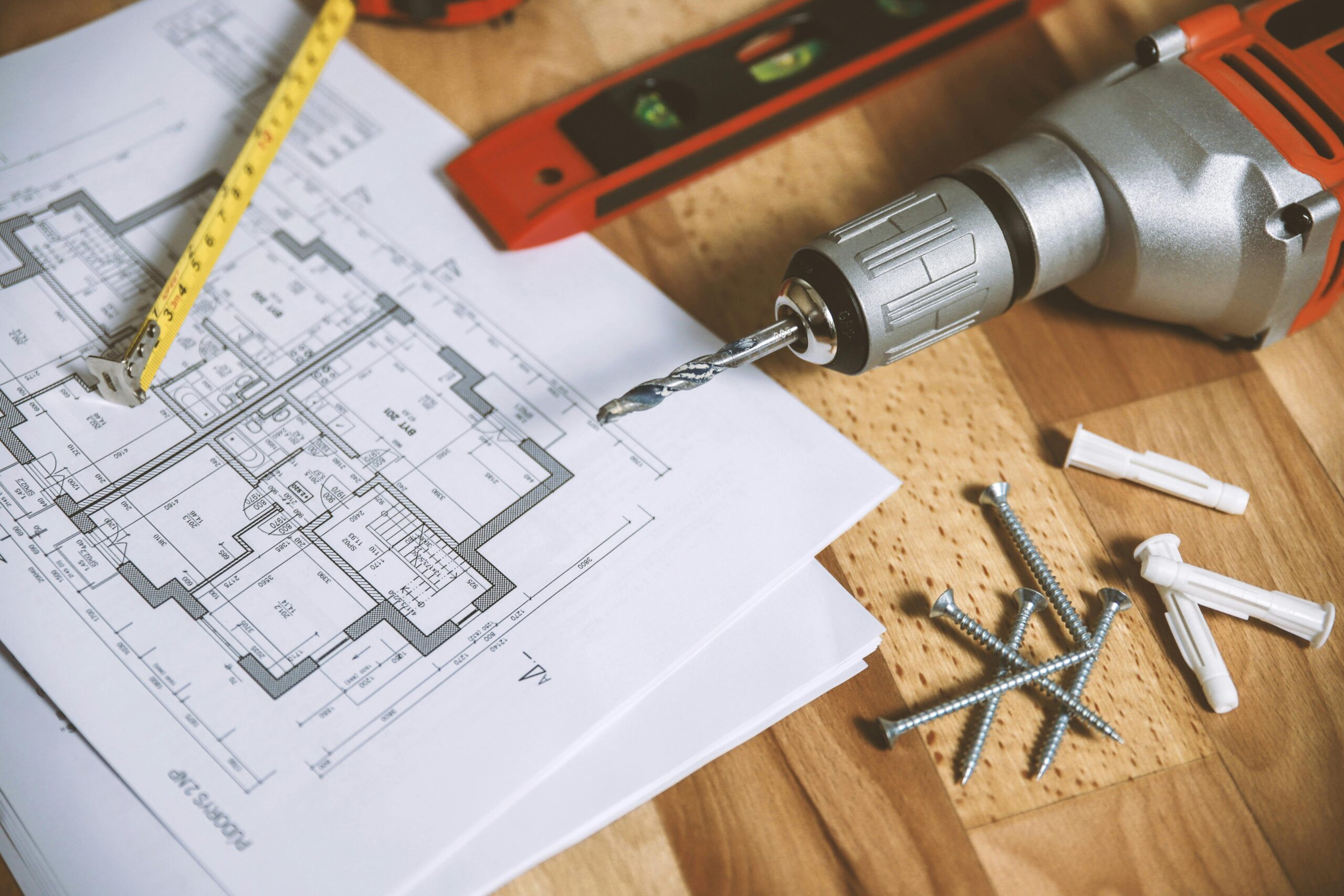It is important to be acutely aware of the major property flipping risks that have the potential to turn any budding property developer’s dream into a nightmare.
One mistake can cost a flipper dearly – potentially even their own house.
That’s why having a sound financial strategy covering all the bases and possible issues is so crucial.
It’s also vital to borrow from a lender that accommodates and is experienced in working with property developers and flippers.
Otherwise you could find yourself locked into a loan you no longer need or worse still, not be granted finance at all.
You wouldn’t set up a new business without drawing up a detailed business plan.
So don’t commence any renovation project without thinking of every possible outcome.
Here are the property flipping risks you should be wary of.
Underestimating renovation costs
That business plan you drew up should have plenty of fat in it to absorb all kinds of unforeseen costs.
That’s because underestimating your renovation costs is one of the biggest property flipping risks.
California has some of the highest material and labor costs in the country.
Material shortages have been known to delay projects significantly, further driving costs north.
Older properties can hide their problems until the walls come down.
That’s when issues such as asbestos, cracked foundations, mold or outdating plumbing and electrical systems tend to rear their ugly heads.
These unforeseen costs can quickly chew into your profit margin.
It’s wise to have a cash reserve of as much as 25 per cent of the cost of the project available for when these hidden costs occur.
Without it, you may forced to take out a second hard money loan just to keep the project afloat.
Underestimating time
The building industry regularly suffers construction delays for any number of reasons.
That is why it is important to build in a safety net in terms of time as well as money.
Completion delays can leave developers with expensive costs including loan interest, insurance, utility bills and taxes.
Never assume a contractor will meet their agreed timeline without factoring in the chance of a delay.
The California real estate market also moves notoriously slowly at times, especially in a buyer’s market or for higher-end properties.
That increases the risk of the market cooling before a flipped house is sold.
Overestimating the ARV (After-Repair Value)
The ARV is one of the most important numbers in the whole process.
Overestimate it and you risk spending a lot of time and money for nothing or worse still, a considerable loss.
You’ll need to understand where the local property market is headed and be confident it won’t cool before your redevelopment is on the market.
That means talking to local real estate agents and critically examining market trends in the area you are considering purchasing.
Ideally, your flipped home should be listed slightly below market value to ensure it attracts interest.
Make a conservative estimate of your ARV so you can consider any sale price above it as a bonus.
Overcapitalizing for the neighborhood
This ties in closely with researching the neighborhood where you plan to purchase.
Don’t fall for the trap of assuming locals will necessarily pay more for the best house in the worst street.
By overcapitalising your project, you risk wasting money on a standard of fixtures and fittings that are out of step with other homes in the vicinity.
Ensure your development is in keeping with similar house flips nearby and that you are confident of seeing a return on your outlay.
High purchase prices
Another vitally important number in the process is your purchase price.
The difference between it and your sale price represents your profit before expenses.
Real estate prices have exploded in recent years so it is imperative you are not seduced into paying too much for a property.
The investment and development market is always competitive in California and you are likely to encounter multiple bidders and interested parties in your target property.
If you overpay for a property, you risk significantly reducing your potential profit and if the market cools or reverses, you stand to lose a whole lot more.
Economic downturns
The average flipped home takes between three and nine months to complete depending on the extent of the renovations.
Often longer, depending on the circumstances.
Economic conditions rarely remain static over that length of period.
If interest rates rise, flippers may face a double whammy of higher loan costs and fewer potential buyers for their property when it hits the market, forcing its sale price downward.
Permits and zone challenges
California has complex building codes, zoning laws and environmental regulations.
Failing to observe them risks costly delays, fines and even the possibility of having to redo renovations.
Parts of the state are also vulnerable to wildfires, earthquakes and coastal erosion.
Environmental regulations may demand costly modifications or even limit development options.
California’s strict energy efficiency standards may also add a significant cost to renovations if not factored in but can normally be recouped at the time of sale.
Capital Gains Tax
Profits from selling a flipped property are subject to both federal and state capital gains taxes which can be as high as 37 per cent in California for properties held for less than 12 months.
There have been a number of attempts to change state tax laws in recent years so it is important to remain abreast of the latest regulations, factoring in your tax obligations before assessing the potential of any development.
Get advice today
Flipping properties is a great way to make significant amounts of money.
But there are so many property flipping risks that can trip up naive developers.
Without meticulous preparation and consideration, there is a lot that can go wrong.
It is critical to find a lender who knows and understands the business of flipping houses, and can set you up with funding done the right way for property entrepreneurs.
Equidy is that lender.
At Equidy, our founders have an intimate and personal history with property, covering all aspects of real estate and property development in California for more than four decades.
We stand by our core belief that anything is possible and we try to prove it every single day.
Our goal is to reward entrepreneurship and help you crystallize your wealth creation dreams.
But we don’t just facilitate your finances.
We work creatively with you every step of the way, providing our vast knowledge and support network to help your project take shape.
That includes expertise when it comes to ARV, renovation costs and the latest tax laws to ensure the viability of your development.
We enjoy long and established relationships with serious investors, sellers and real estate professionals while leveraging our reputation and trust and using clear communication to minimise the risk to all parties.
Apply now … it only takes a few minutes. You can also book a free, no obligation strategy call with one of our experts to talk about the finance options available for your project.

